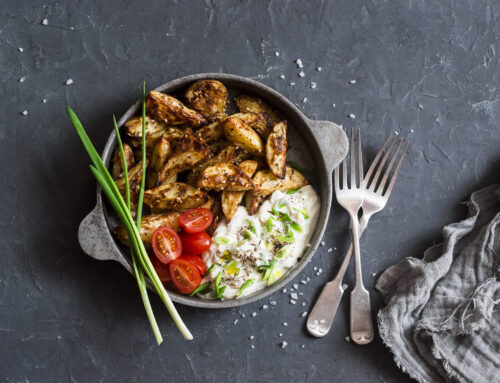Food is an integral part of religious and festive celebrations in both Greece and Cyprus, reflecting the intertwined relationship between culinary practices, cultural identity, and spirituality. In these Mediterranean countries, food serves not only as sustenance but also as a powerful symbol of religious beliefs, communal connections, and shared experiences. In this guide, we explore the rich symbolism of food in religious and festive contexts in Greece and Cyprus, highlighting the ways in which culinary traditions and rituals contribute to the unique cultural heritage of these nations.
Religious Observances and Food Symbolism
Greek Orthodox Easter
Easter is the most significant religious observance in Greece, and food plays a central role in the festivities. Traditional dishes such as lamb, which symbolizes the sacrifice of Jesus, and tsoureki, a sweet braided bread representing the resurrection, are enjoyed during the celebration. Red eggs, dyed to symbolize the blood of Christ, are also an essential part of the Easter feast and serve as a reminder of the religious significance of the holiday.
Christmas in Greece and Cyprus
In both countries, Christmas is marked by the preparation and consumption of special dishes with deep religious symbolism. Christopsomo, or “Christ’s bread,” is a traditional Greek Christmas bread adorned with symbolic decorations that represent the nativity of Jesus. In Cyprus, kourabiedes, buttery shortbread cookies dusted with powdered sugar, symbolize the purity and innocence of the Christ child.
Fasting Periods
Fasting is an important aspect of religious observance in Greece and Cyprus, particularly in the Greek Orthodox Church. During fasting periods, such as Great Lent, followers abstain from certain foods, such as meat and dairy products, as a form of spiritual discipline and purification. This abstinence is believed to bring believers closer to God and helps to foster a sense of empathy and compassion for those less fortunate.
Festive Celebrations and Food Symbolism
Name Days
In Greece and Cyprus, name days – the feast days of the saints after whom individuals are named – are often celebrated with gatherings and feasts. Traditional dishes and sweets are prepared and shared among family and friends, symbolizing the connection between the individual, their namesake, and their community.
Weddings
Weddings in Greece and Cyprus are joyous occasions marked by an abundance of food, music, and dancing. Traditional dishes, such as pastitsio and kleftiko, are prepared to symbolize prosperity and abundance, while sweet treats like baklava and loukoumia represent the sweetness of married life.
Harvest Festivals
Harvest festivals in Greece and Cyprus celebrate the bounty of the land and the fruits of agricultural labor. Grapes, olives, and other seasonal produce are often featured prominently in these celebrations, symbolizing fertility, abundance, and the deep connection between people and the land.
Culinary Offerings and Blessings
Antioxidants are compounds found in certain foods that help protect our cells from damage caused by free radicals. Free radicals are unstable molecules that can cause damage to our cells and DNA, leading to chronic diseases like cancer, heart disease, and Alzheimer’s disease. Traditional Greek cuisine includes many antioxidant-rich foods that can help protect our cells from this damage.
Church Offerings
In both countries, it is common for individuals to bring food offerings to the church, particularly during religious holidays. These offerings, often consisting of bread, wine, or other symbolic foods, are blessed by the priest and shared among the congregation, symbolizing the unity of the community and its connection to the divine.
Home Blessings
In Greece and Cyprus, it is customary for families to invite a priest to bless their homes during festive periods or upon moving into a new residence. Food offerings, such as bread, wine, and sweets, are often presented during these blessings, symbolizing the family’s gratitude for the blessings bestowed upon their home and the abundance they hope to enjoy within it.
Food symbolism in religious and festive contexts in Greece and Cyprus reflects the deep-rooted connection between culinary practices, cultural identity, and spirituality that characterizes these Mediterranean nations. By participating in these traditions and rituals, individuals in Greece and Cyprus reaffirm their religious beliefs, strengthen their communal bonds, and express their gratitude for the blessings of life and abundance.
Through the exploration of food symbolism in religious and festive contexts, we gain a deeper understanding of the ways in which culinary traditions and rituals are intertwined with the cultural heritage of Greece and Cyprus. By embracing these customs and the powerful symbolism they represent, we not only celebrate the unique aspects of Greek and Cypriot culture but also acknowledge the universal role that food plays in shaping human experiences, fostering connections, and preserving traditions for future generations.
As we continue to explore the rich tapestry of culinary practices, religious beliefs, and cultural identity in Greece and Cyprus, we are reminded of the importance of food as a symbol of faith, community, and continuity. By honoring these time-honored traditions and rituals, we contribute to the preservation of the unique cultural heritage that defines these Mediterranean nations and enriches the lives of those who call them home.

